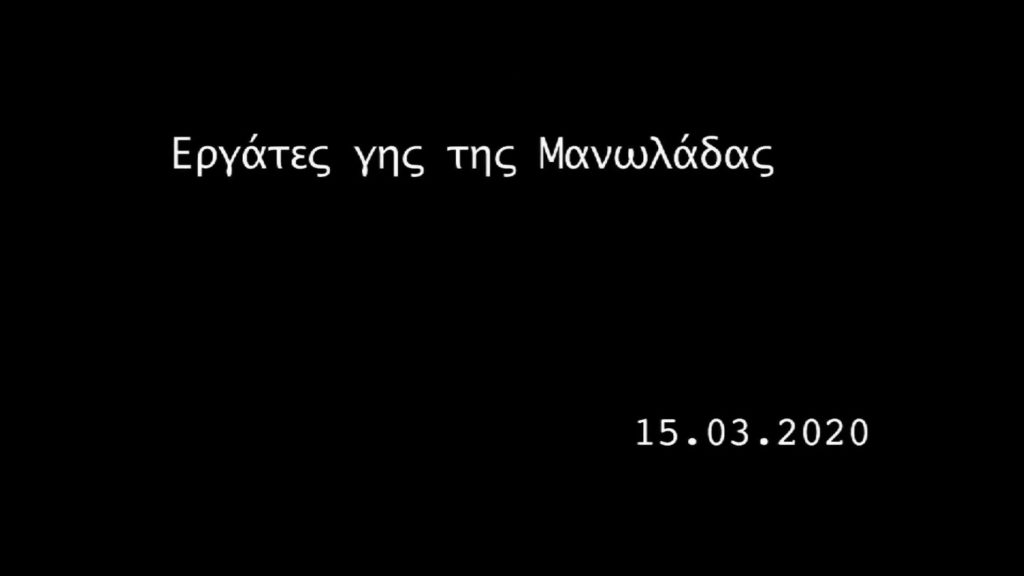The special economic and health zone of Manolada: the unparalleled hypocrisy of the state
by Apostolos Kapsalis
Neither the pandemic nor the emergency measures to protect public health have improved the working and living conditions of the many thousands of land workers in the greater Manolada area. On the contrary.The well-known problems of recent years have now been exacerbated by the lack of work due to the reduction in exportsand also the fear of the coronavirus in a territory that has been forgotten by all. In the following video, the mainly Bangladeshi land workers in Manolada explain, politely and with dignity, these problems, which are expected to worsen in this year’s growing season, between now and the summer.
In particular, therehas been absolutely no improvement in the living conditions of the migrant workers in the area, although the well-publicised decision of the European Court of Human Rights to convict Greece in 2017 explicitly stipulated that change was necessary. Workers remain exposed to cold and dampness in the winter, and unbearable heat and a suffocating atmosphere in the spring and summer while living next to rubbish bins. The lack of drinking water and proper toilets aggravates an already inhumane living environment in slums that, in some cases, are locatedjust a few dozen meters away from the village’s main square.
At the same time, the workers must meet various obligations while their wages are shrinking. On the one hand, they have to pay the“rent” and other living expenses in the Manolada ghetto. On the other, they are expected to send remittances to coverthe needs of their families in the country of origin. Unexpectedly, given the ban on the entry of seasonal land workers mainly from Albania due to the lockdown, the Manolada workers and all permanently settled foreign workers in the country are gradually becoming essential for the cultivation and harvesting of crops across the country.
On the occasion of this lack of manpower, the state, in a spirit of genuine hypocrisy, not only avoidsthe question of legitimizing the employment status of these workers but is further elaborating the framework for their extreme exploitation. Citing the extraordinary circumstances, the New Democracy government has used, through the Act of Legislative Content of 13 April 2020, the regulatory framework of the slave-likeand forced labour of article 13A, which the Syriza government added to Law 4251/2014,to a) extend the six-month work permits (but not residence permits) on the strength alone of a statutory declaration by the employer, b) remove the role of the decentralised administrationsin issuing permits by concentrating all responsibilities in the local police departments, and c) suspend the requirement to submit i)the employment contract and ii) the proof of the provision of appropriate accommodation, even for new licenses to be issued by June 30.
This peculiar unilateralcontract of the employer, in combination with the enhanced role of the police,provokesreasonableassociations with Nazi labour camps. The intention to “promote” tens of thousands of refugees and asylum seekers to this employment and residency regime inevitably conveys an image of communicating vessels, where the comparison of living standards between refugee camps and ghettos in rural areas loses its meaning. And all this in the midst of a pandemic.
—Dr Apostolos Kapsalis is a researcher on industrial relations at the Labour Institute (INE) of the General Confederation of Greek Workers (GSEE)



